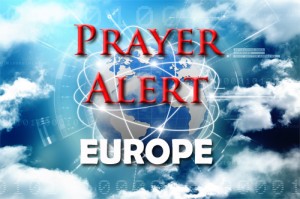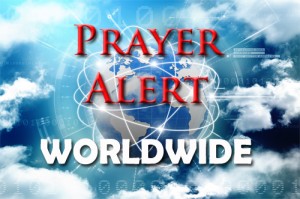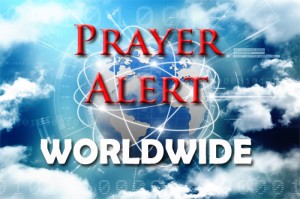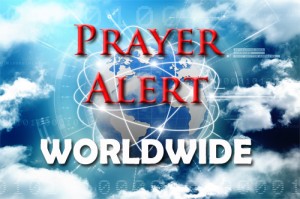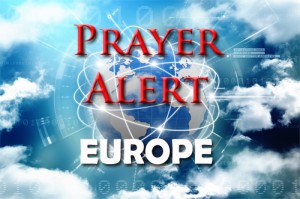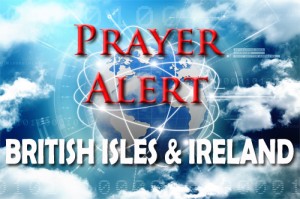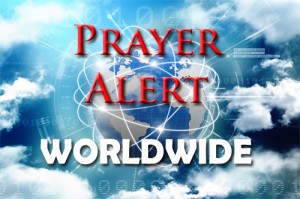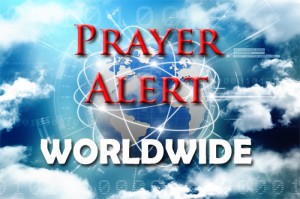Displaying items by tag: Corruption
The poorest country in Europe
Albania is considered to be the poorest country in Europe, with a high level of poverty and little access to basic social services. Thousands of children face injustice in many forms of abuse, violence, exploitation and early marriage. The country still lacks a fully functional system which should prevent, protect, and rehabilitate children from all forms of discrimination and abuse. World Vision works there to speak up on behalf of children and improve lives through child protection programmes (see ) In spite of the introduction of child protection measures, Albania is still one of the riskiest places for children in Europe. The risks start at birth - a high infant mortality rate - and continue through to early adulthood, when the lack of opportunities makes it difficult for them to become independent. UNICEF reported that 12% of children aged 5-14 are working while adults face unemployment and poverty.
Maldives: break the cycle of impunity
An ethical cloud is over the Maldives, an idyllic tropical holiday destination. Islands and submerged coral lagoons have been leased out to tourism developers in no-bid deals. At least US$79 million from the lease fees was embezzled into private bank accounts. The scandal involves local businessmen and international hotel operators, and leads all the way to outgoing president Abdulla Yameen. Transparency International and Transparency Maldives urge all politicians and civil servants involved in the transition to the newly-elected government to ensure that there are no further secret deals to allow those connected to corruption to escape accountability. It was revealed that in the eighteen months before the 23 September election which ended President Yameen’s presidency, senior government officials leased out 50+ islands at a fraction of the original price, and Yameen anonymously received US$1.5 million. See also
Mexico: more police under investigation
In June Ocampo’s entire police force was arrested: see Now, in Acapulco, three senior police officers have been arrested, and all the police have been disarmed and replaced by the military while investigations are made into infiltration by drug gangs. With low pay and little training, police are easy targets for cartels. Last year there were 30,000+ murders involving bloodthirsty drug cartel rivalries. Two of the senior police officers arrested are accused of murder. There has been a military-led campaign to battle the cartels for over ten years. The decision to act in Acapulco was the consequence of increased crime and lack of action by police to deal with it. The port city of Acapulco, once a glamorous beach resort, has been transformed by deep-rooted drug crime into one of the most murderous cities in the world. The area is a hub for opium poppy production.
Global: ensuring climate funds reach those in need
As climate change creates huge ecological and economic damage, more and more money is being given to at-risk countries to help them prevent it and adapt to its effects. But these grants can be diverted into private bank accounts and vanity projects. Senior staff at Kenya’s geothermal energy company went on compulsory leave after trying to embezzle US$19 million, and a Bangladesh fishing community cannot reach their cyclone shelter that was built on the other side of a river which isn’t crossable during bad weather. The contractor built the shelter next to his own house. Also 52 Maldivian families were relocated from islands vulnerable to erosion and sea surges. The government raised funds to house them. Construction never began; they were still homeless eight years after the relocation. Transparency International works to safeguard climate change funding from corruption, by monitoring and exposing corruption risks and supporting communities.
Colombia: Christians suffering
Formerly, Colombia was a democratic country with guaranteed religious freedom. However, large areas are now under the control of criminal organisations, drug cartels, revolutionaries, and corrupt paramilitary groups. Christians are extremely vulnerable. Guerrilla groups force them to pay a ‘protection tax’ as an insurance against assault or murder. They issue death threats to those involved in evangelism, fearing that believers will continue to stand in opposition to the reign of terror they use to maintain power. In indigenous communities, violence is employed to frighten Christians whom they see as threats to ethnic customs and different worldviews. In all of these situations, Christians are prevented from freely congregating and sharing their faith. Pray for peace and hope for these Christians, and that they will stand strong in the face of persecution.
Romania: 450 protesters hurt in clashes
Tens of thousands of demonstrators gathered in Bucharest the day after 450+ people were hurt and about 30 arrested in a huge anti-corruption protest on 10 August. Police had used water cannon and tear gas to disperse protesters calling for the left-wing government to resign. Many protesters needed treatment after inhaling pepper spray and tear gas; others suffered blows. Floarea Toader, 64, said, ‘My children work in Spain and they would like to come back. But for now that's not possible as the politicians are only interested in themselves and do nothing for anyone else.’ Four million people have left Romania in the last fifteen years, seeking a better life. Romania's average monthly wage is £465. Austrian chancellor Sebastian Kurz, whose country currently holds the EU rotating presidency, criticised the violence, in which an Austrian public broadcaster cameraman was hurt.
Metropolitan Police corruption
Allegations of ‘serious corruption and malpractice’ within the Metropolitan Police are being investigated by the Independent Office for Police Conduct (IOPC). Gross misconduct notices were served on three officers, one of whom is also under criminal investigation, and ‘a number’ of others are being assessed. Investigations are at an early stage and may involve as many as 14 officers, including senior officers who interfered with or curtailed investigations and failed to investigate allegations of wrongdoing. There is also alleged systemic removal of the restrictions of officers under investigation and racial discrimination. According to the Sunday Times, three whistleblowers from the Met told the IOPC that members of the Directorate of Professional Standards (DPS) were shielding officers from a range of allegations. Files have been shredded in the past when allegations of corruption were made, making it hard to prove there was sleaze, bribery or fraud.
Corruption in Africa
We recently had ‘African Anti-Corruption Day’ ,which recognised the progress made in the fight against corruption and the significant work still left to do. To highlight this point, the African Union (AU) designated 2018 as the year for ‘winning the fight against corruption’. The AU signed several treaties aimed at ensuring democracy, rule of law and good governance. But much more needs to be done. Corruption hampers development and the ability to bring people out of poverty. The continent ranks lowest amongst global regions in corruption perceptions, and the impact cannot be underestimated. 43% of Africans are living in poverty while over 50 billion US dollars’ worth of stolen assets flow out of Africa annually, money that could be invested in jobs and social services, where additional resources are needed most. Transparency International wrote an open letter to the AU highlighting seven areas where it could focus its efforts.
Mexico: Entire police force arrested
Ocampo’s entire police force was arrested following the murder of a left-wing mayoral candidate, Fernando Angeles Juarez, after a previous attempt to question them resulted in one official reportedly being ‘chased out in a hail of bullets.’ Ocampo, is plagued by illegal logging and gangs. Their police force is accused of being involved in corruption as Mexico attempts to fight back against the drug cartels. There is escalating violence because there are far more elections being held simultaneously than ever before in Mexico. With over 3,400 local, state and federal posts at stake, there are 15,000+ candidates on the campaign trail and criminal groups want ‘their people to win’ so they can gain control over territory, through local governments. At least 18 candidates have been killed while running for political posts. The 1 July elections will decide the presidency, governorships and Congress.
Armenia: urgent international appeal
On 21 April, 37 human rights organisations and NGOs made an urgent appeal to the UN Council of Europe on behalf of Armenia. The opening sentence was, ‘We, the undersigned civil society organisations, wish to bring to your attention the political situation in Armenia that is a clear confrontation between the existing autocratic corrupt regime and the hope for democracy.’ Until 2015 Armenia had a semi-presidential governance system with direct elections for the president to hold a maximum of two terms of service. To maintain power after the expiry of his two terms, President Sargsyan changed the constitution. Since mid-March civil society groups have campaigned to oppose his election of a prime minister with a life-long dictatorship (a common trend in former Soviet countries). The peaceful protests, started independently by different groups, quickly attracted wide support of tens of thousands of dissatisfied people, who are facing brutal attacks by police and criminal groups every day. See
